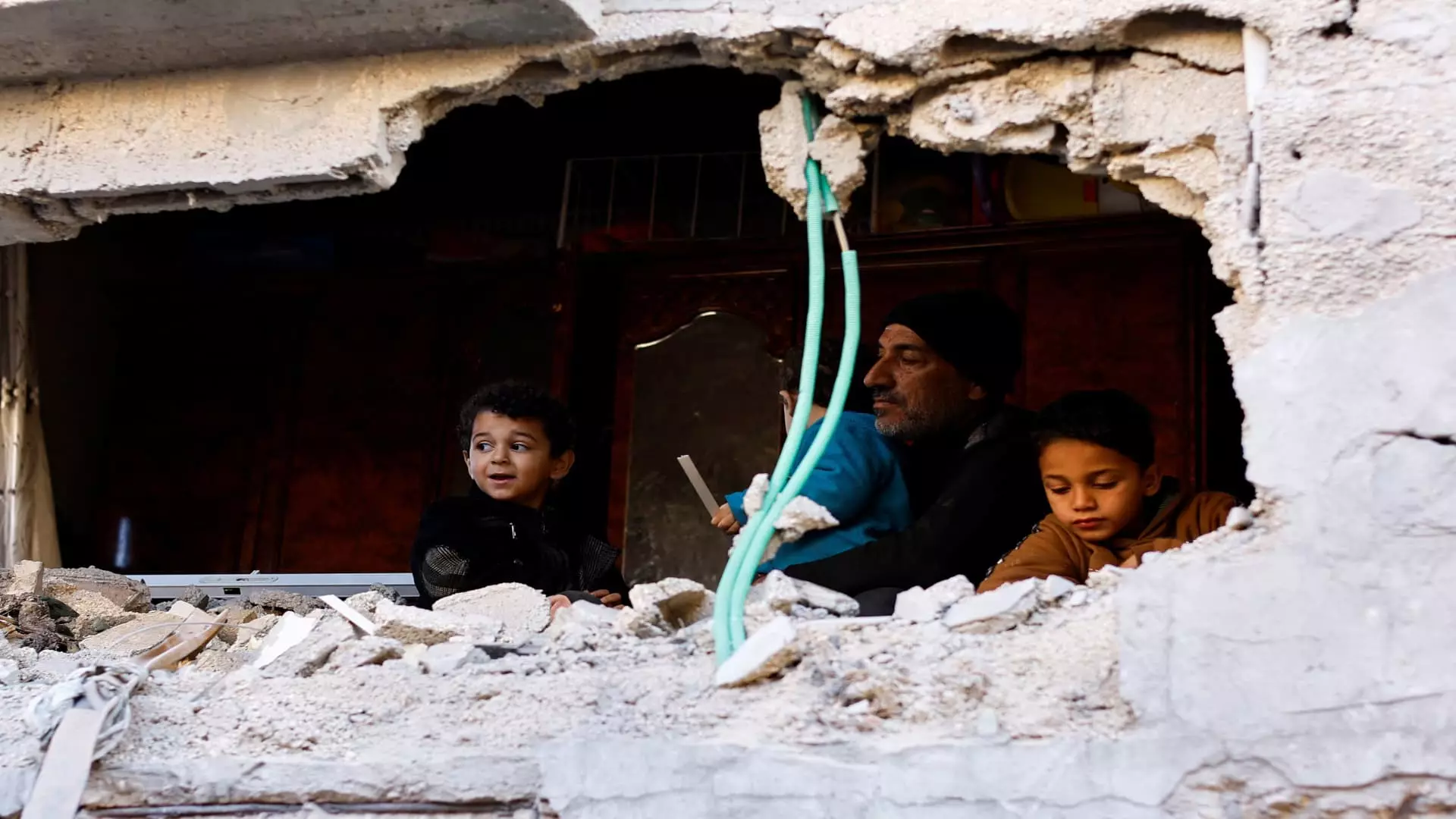The Abu Mustafa family finds themselves in a desperate situation. Their tent is situated alongside a daunting concrete and metal fence that separates Gaza from Egypt in Rafah. Although Rafah has been the last relatively safe place in an enclave decimated by Israel’s brutal military offensive, it may soon face its own destruction. As more than a million Palestinians are crammed into the area around Rafah, they fear that they have nowhere left to flee. With the fighting still raging and the region largely reduced to rubble, the dire circumstances are evident for all to see.
For families like the Abu Mustafas, displacement brings unimaginable difficulties. Laila Abu Mustafa, a mother of two daughters with disabilities, laments the hardships they face daily. Without a means to transport her children and lacking the necessary resources, she finds herself constantly on the run. She asserts that if there were to be further displacement, they have nowhere left to go. The situation is dire, as both infrastructure and basic amenities have been destroyed, leaving families like the Abu Mustafas vulnerable and without any support.
After nearly four months of relentless bombardment, Gaza has been reduced to ruins. Israeli ground forces, along with their air raids, artillery fire, and controlled detonations, have overrun the enclave. Homes, public buildings, and vital infrastructure have been destroyed, leaving the majority of Gazans homeless. It is estimated that over 28,000 people, with a staggering 70% being women and children, have lost their lives in the war. Additionally, more than 85% of the population is now homeless, desperate for assistance and shelter.
The impact of the war on the most vulnerable, particularly children, cannot be overstated. A U.N. survey reveals that almost one in ten children under the age of five suffers from acute malnourishment. These innocent lives bear the brunt of the conflict, facing hunger, illness, and death on a daily basis. Efforts to negotiate a ceasefire and secure the release of hostages have proven fruitless thus far, with Israel rejecting a recent Hamas proposal. Israel insists that the fighting will not cease until Hamas surrenders brigades believed to be hiding in Rafah, further prolonging the suffering of innocent civilians.
Rafah has become a focal point of concern, with recent Israeli air raids targeting the region. Hamas reported that these air raids resulted in the deaths of two hostages and the injury of eight others. The group warns that any assault on Rafah would jeopardize ongoing negotiations for the release of remaining hostages. Prime Minister Benjamin Netanyahu has confirmed Israeli forces’ intent to assault Rafah, but he assures that a detailed plan is being prepared to ensure the safety of civilians in the area. However, the international community voices its deep concern, with France’s Foreign Ministry highlighting the catastrophic humanitarian crisis that a large-scale offensive would create.
The constant threat of assault hangs heavily over the heads of those living in Rafah. Families like Mariam’s, who fled their Gaza City home at the start of the war with her three young children, are plagued by uncertainty and fear. The questions posed by her children about the impending invasion of Rafah and the grim outcomes they may face terrify her, as she has no answers to console them. The desperation and turmoil in the minds of countless families like Mariam’s is a testament to the urgent need for immediate international intervention.
The humanitarian crisis in Gaza demands immediate attention and assistance from the international community. Innocent civilians, particularly women and children, are bearing the brunt of a devastating conflict that has destroyed their homes and lives. The people of Gaza, including those in Rafah, deserve safety, security, and the means to rebuild their lives. It is essential that nations around the world prioritize the resolution of this crisis and work tirelessly to ensure the well-being of those affected by this senseless violence.

Leave a Reply